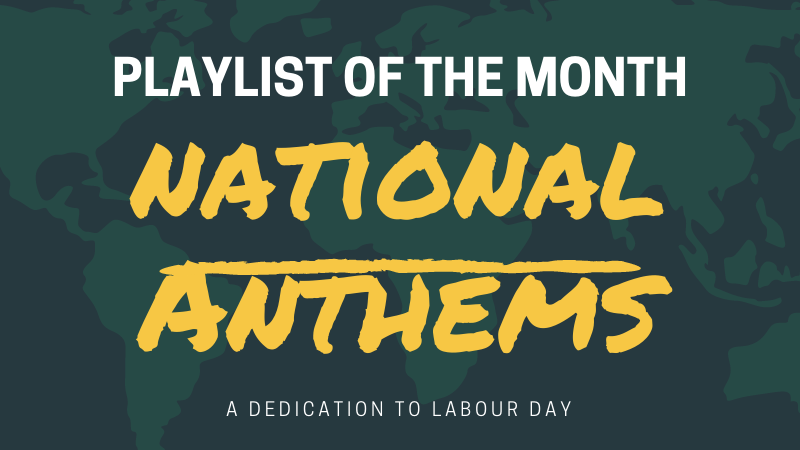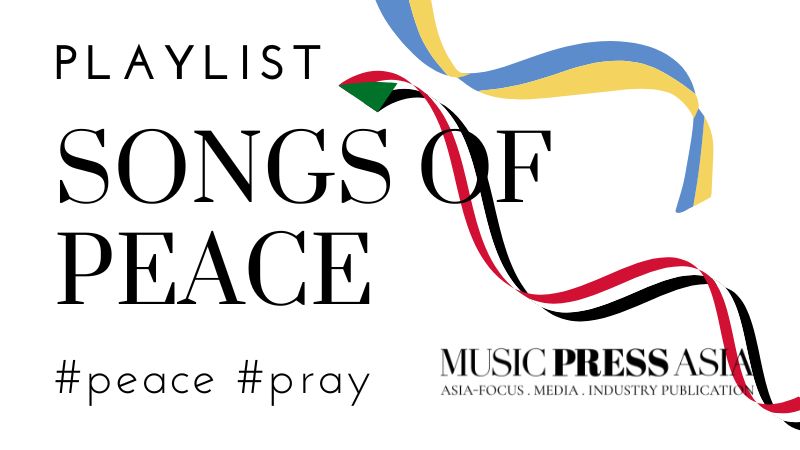May Day: APAC Music Playlist

Labour day in Southeast Asia has come a long way since the 19th century when the idea of providing better pay and humane working hours for adults and children equals a healthier workforce.
Today, we provide a brief note of some of Southeast Asia’s most prominent communities of diverse cultural inheritance and how they celebrate May Day. While not everything seems rosy, Labour Day continues to see positive change in these challenging times post pandemic.
To grasp an idea of how each country embrace modernity in the 21st century, we look into their current issues alongside its national anthems and songs that drove their people. This is indeed a playlist for the serious listeners looking to study in-depth the cultural adaptation present in all facades representing each of these countries. In no particular order, it is selected for its complexities and the people it represents in the past and present. Note that English translations are provided in each song. Happy Labour Day!
International Worker’s Day, popularly known as Labour Day in most countries is also often referred to as May Day. A celebration of labourers and the working classes, its historical background dates back to the 1880s, at the height of the Industrial Revolution when the average American worked twelve-hour days and seven-day weeks. As manufacturing increases, people of all ages especially the poor and recent immgrants then often faced unsafe working conditions, with unadequate access to fresh air, sanitary facilities and breaks. For this reason, conveniently, the date was then chosen for political reasons in support of working-class demands for the eight-hour day.
The 1904 International Socialist Congress, Amsterdam called on all Social Democratic Party organisations and trade unions of “all countries to energetically demonstrate the legal establishment of the eight-hour day on the First of May, as well as for the class demands of the proletariat and universal peace.”
Let’s look at how some countries in Asia celebrate this day.
JAPAN’s GOLDEN WEEK is a collection of four national holidays over a one week period starting from 29 April through 5 May. The origin of this seven to ten days apparently comes from the entertainment sector. A time when families and friends would celebrate spring by watching their favourite movies, hence gained popularity as a week when Japanese blockbusters are released. However, it is on 23 November that Japanese honours labour, celebrate production and giving thanks. A festival to celebrate harvest dating back to the rituals of the Asuka period.
WHILE MAY DAY may only be a bank holiday for most of us here in Southeast Asia, China celebrates a five-day holiday similar to a long weekend off from work. Nothing out of the ordinary, the Labour Day holiday in the world’s second largest economy is expecting about 265 million journeys to by road, train or boat, with hundreds of day-trip makers packing out the walkway along the top of the Great Wall, 60km from downtown Beijing.
KNOWN RATHER SIMPLISTICALLY as ‘Worker’s Day’ in South Korea, 1 May isn’t a public holiday, but rather, a paid holiday for workers under the Designation of Worker’s Day Act.
VIETNAM’S LATEST APPROVAL of its labour code for 2021 can only mean greater protection for its employees. Predicted by the Asian Development Bank as the fastest growing economies in Southeast Asia, celebrated Labour Day as a public holiday; a day right after Reunification Day.
WITH MANY MORE legal challenges against the Job Creation Law set by Indonesia’s government intended to improve bureaucratic efficiency to attract more investment, Indonesia saw its people rallying against the new law they say harms workers’ rights and welfare. In a recent bid to prevent spike in the number of COVID-19 cases, the government has decided to reduce the number of collective leave days this year. What a year for Indonesia.
CELEBRATING its 60th year as an independent nation, Singapore’s prime minister paints a bright future of its workforce that has come under great strain due to COVID-19. Having helped over 28,000 workers find new work under its Job Security Council, and implementing the Self-Employed Person Income Relief Scheme (SIRS) to help those who are self-employed. Quoting the affects of the pandemic to accelerated trends in the digital, automotive and sustainability sector.
IN THE PHILIPPINES, Labour Day is celebrated both as a secular and a religious holiday, with the latter being the feast of St. Joseph the Worker. The country celebrated its very first May day in 1903, under the Union Obrero Democratica de Filipinas (UODF). However, it was until later in April 1908 that a bill was officially passed to mark 1 May as a national holiday.
Labour Day is also celebrated by the United States and Canada on the first Monday of September.












